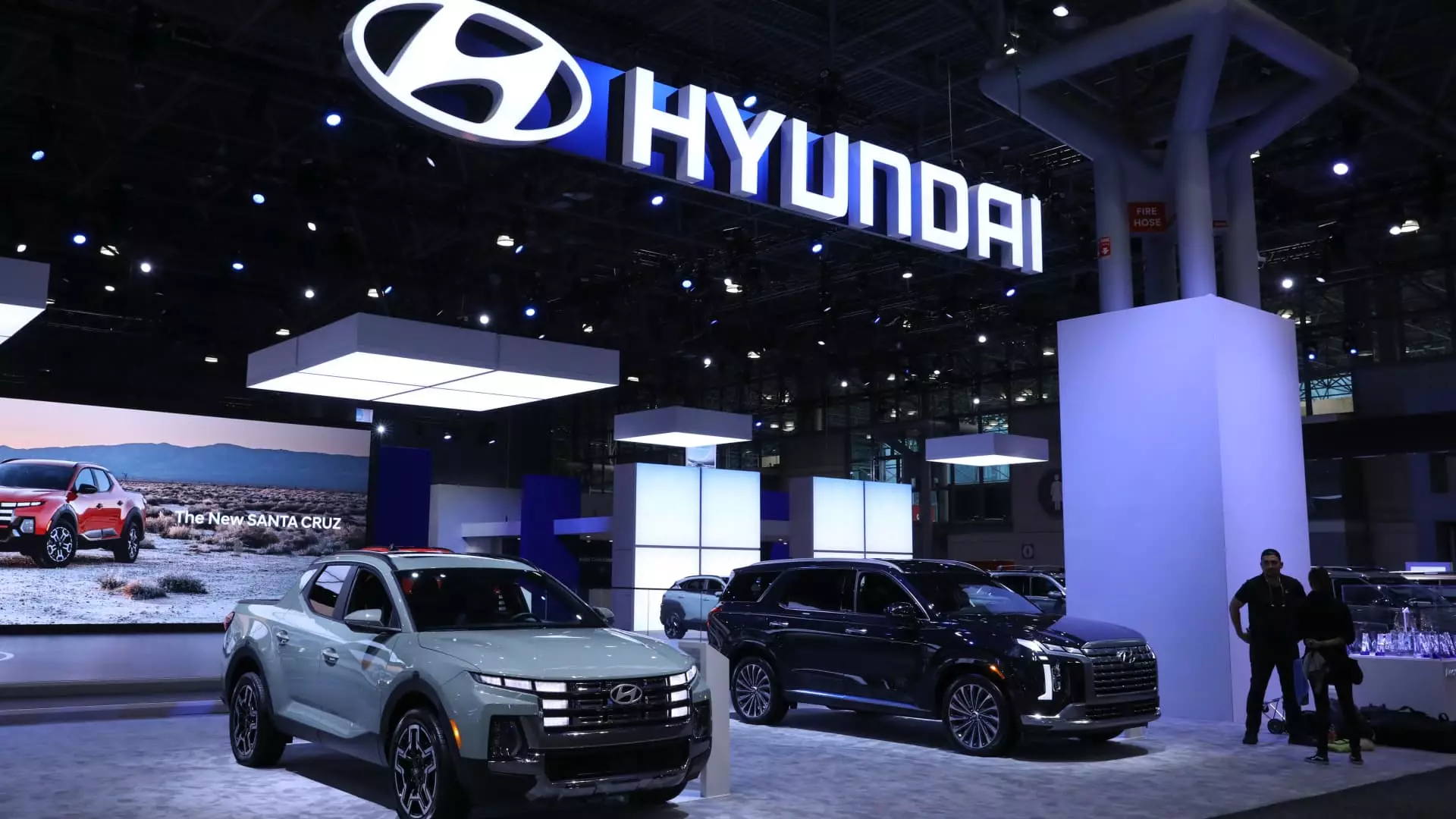South Korea’s automotive giant, Hyundai, is set to carve profoundly into the U.S. landscape with a staggering $20 billion investment aimed at reshaping manufacturing and strengthening its foothold in the global auto industry. This investment includes a hallmark $5 billion steel plant in Louisiana, a crucial addition to Hyundai’s infrastructure, especially as the demand for electric vehicles continues to surge. Hiring approximately 1,500 employees, this venture not only symbolizes economic growth but also represents Hyundai’s strategic pivot to fortify its operations against the backdrop of shifting trade policies under the Trump administration.
A Race Against Tariffs
What’s particularly striking about this announcement is the context in which it unfolds. As major international corporations scramble to avoid punitive tariffs and maintain competitiveness, Hyundai’s localizing strategy takes center stage. It’s a savvy endeavor to sidestep the burdens of international tariffs that could undermine profit margins and market access. José Muñoz, Hyundai’s CEO, articulated this beautifully by asserting that increasing localization is paramount. In an age where geopolitical tension often dictates financial strategies, Hyundai’s move could be interpreted as a lifeline, a mechanism to navigate the choppy waters of trade relations and political posturing.
Competition Intensifies in the EV Market
In a market already heating up, Hyundai’s initiatives come at a time when electric vehicles (EVs) have become the cornerstone of the automotive future. Competing directly with Tesla, Hyundai is not just playing catch-up; it’s positioning itself as a formidable player. By integrating advanced steel production into their manufacturing processes, there’s a clear intention to create vehicles that resonate with both consumers and environmental standards. Hyundais’s U.S. plants—already well-established in Alabama and Georgia—will now benefit from localized steel production, ensuring that the EVs they produce are not only cutting-edge but also economically viable.
The Tariff Paradox
Interestingly, the trade dynamics between the U.S. and South Korea remain precarious. Trump’s critique of South Korean tariffs— which have historically been four times higher than U.S. tariffs—highlights the tension inherent in this economic relationship. Despite both nations having a free trade agreement, this paradox stresses the need for ongoing dialogue and revision of trade terms. Hyundai’s investment may appear as a resolution to this issue, positioning the conglomerate to mitigate the impacts of potential trade disputes while simultaneously fostering economic growth in the U.S.
Prospects for Future Collaborations
As President Trump, Hyundai Chairman Euisun Chung, and Louisiana Governor Jeff Landry are set to announce this monumental investment, it raises questions about future collaborations between U.S. and South Korean businesses. Could this be a stepping stone for deeper economic ties? While the focus remains on immediate gains from this investment, the broader implications could redefine how trade agreements are structured in the future. With Hyundai spearheading this movement towards onshoring, it promises a recalibration of manufacturing norms and international relations, which could serve as a model for other companies navigating similar challenges in a globalized economy.

